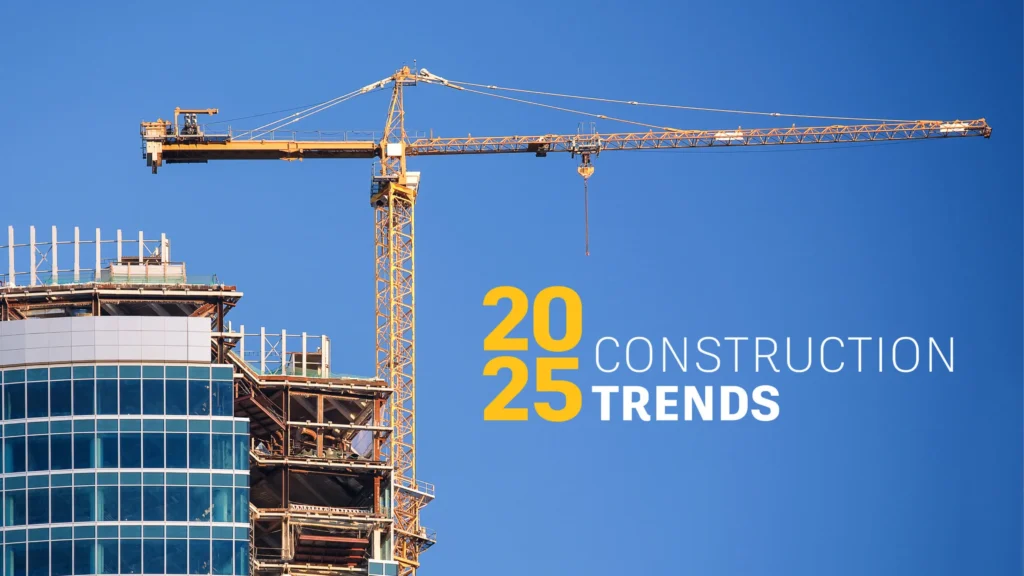
The Evolving Role of Construction Companies
The construction industry in 2025 is more competitive, tech-driven, and sustainability-focused than ever before. Whether you’re a developer, homeowner, or contractor searching for a builder near me, understanding how construction companies have evolved is crucial. From cost structures to digital management, this article explores what defines top-tier construction companies in today’s market—and what clients should expect when hiring in this dynamic era.
Construction firms are no longer just labor providers. They are full-scale service partners offering cost estimation, project planning, digital modeling, and post-handover support. Clients expect a higher degree of accountability, real-time updates, and accurate forecasts—especially when selecting among hundreds of contractor companies now competing online and locally.
Construction Companies by the Numbers
2025 is a pivotal year for the global construction industry. Post-pandemic recovery, digitalisation, and green building initiatives are shaping how projects are delivered. According to the UK Government Construction Report:
- The UK construction industry contributes over £110 billion annually to the economy.
- Over 320,000 construction companies are registered in the UK.
- More than 2.7 million people are employed across residential, commercial, and infrastructure sectors.
- Residential construction accounts for nearly 40% of total industry value.
Despite growth, there are concerns about industry fragmentation. Many companies of construction lack digital maturity, efficient workflows, or access to advanced technology, which can reduce project delivery quality. Choosing the right company now requires a more analytical and informed approach.
Cost Trends That Are Shaping the Industry
Managing construction cost effectively is essential in 2025. Developers and contractors face rising input prices, labour shortages, and new compliance requirements. For example, labour costs are up 18% since 2022, and most construction sites now include a 5–8% material cost buffer. Inflation and logistics volatility have added new layers of risk for builders across all regions.
RICS data confirms this trend. Understanding the true cost of construction has become more difficult and makes using tools like a construction cost estimator absolutely essential for accuracy and forecasting.
Furthermore, clients are increasingly asking for transparency—real-time updates on budget consumption, breakdowns of each cost item, and digital receipts. The era of vague lump-sum invoices is ending. Accountability is now a key brand value among top construction companies.
Why Construction Management Software Is Essential
Top construction companies in 2025 depend on construction management software for seamless coordination, cost planning, and scheduling. Platforms like Procore, Buildertrend, and CoConstruct provide dashboards, AI-driven reporting, and real-time collaboration between contractors and clients.
More importantly, these platforms are integrated with building information modeling (BIM) systems, enabling cost estimators and project leads to share drawings, revisions, and procurement details in one place. Using these tools allows better collaboration across departments, ultimately reducing project delivery timelines and budget variance.
Notably, companies of construction that fail to adopt these tools are struggling to meet client expectations. Software is no longer a luxury—it’s a necessity in today’s fast-paced environment.
Sustainability in Building Companies
In today’s market, clients expect sustainability. The best construction companies lead with low-carbon materials, green certifications, and energy-efficient designs. Not only does this improve long-term value—it also wins more projects in an increasingly ESG-driven world.
Contractors are now expected to demonstrate their environmental strategy. This includes the use of sustainable suppliers, digital tools to reduce waste, modular design practices, and aftercare warranties that support long-term building health.
Government incentives are also reshaping demand. From 2025, UK regulations have tightened on embodied carbon, prompting a sharp rise in green building certifications. Builders ignoring this shift may face penalties or reduced eligibility for large-scale public projects.
Choosing the Right Contractor Companies
If you’re searching for a construction company near you, check for digital readiness, pricing transparency, and sustainable methods. Reviews and portfolios matter—but so do tech adoption and responsiveness. Ask if the company uses project dashboards, offers digital drawings, and provides full lifecycle service—from planning to post-handover.
It’s smart to compare 2–3 estimates using a consistent template or format. This ensures you’re comparing the same scope of work and not missing hidden costs. Use tools like our free home construction cost calculator to benchmark numbers before committing.
Construction Sites Today: Smarter, Safer, Faster
Modern construction sites are powered by drone surveillance, mobile apps, and real-time data feeds. This transparency benefits everyone—from builder to investor—and ensures deadlines are met with fewer surprises.
Smart helmets, automated equipment, and connected sensors help monitor productivity, safety, and compliance in real-time. These innovations are not limited to large companies anymore—even mid-size firms are adopting digital site tools to remain competitive and compliant.
The Future of Construction Companies Beyond 2025
Emerging trends like 3D printing, AI-assisted design, and blockchain-based project contracting will further change how companies operate. Success will favour those who adopt early and stay flexible.
By 2030, many expect 30% of new housing developments to include pre-fabricated or modular components. This shift is not just about speed, but precision, cost control, and reduced environmental impact. Forward-thinking companies are already investing in R&D to gain the first-mover advantage.
Conclusion
In 2025, the construction industry demands more than bricks and mortar. From smarter planning to cleaner building practices, construction companies must be more efficient, transparent, and tech-savvy than ever. The strongest companies will be those that combine cost discipline with innovation and sustainability.
If you’re looking for a trusted partner to plan, build, or advise on your next project, get in touch with our team. We combine decades of experience with cutting-edge tools to deliver work that’s on time, on budget, and built to last.
Explore our construction services | Use our free cost estimator